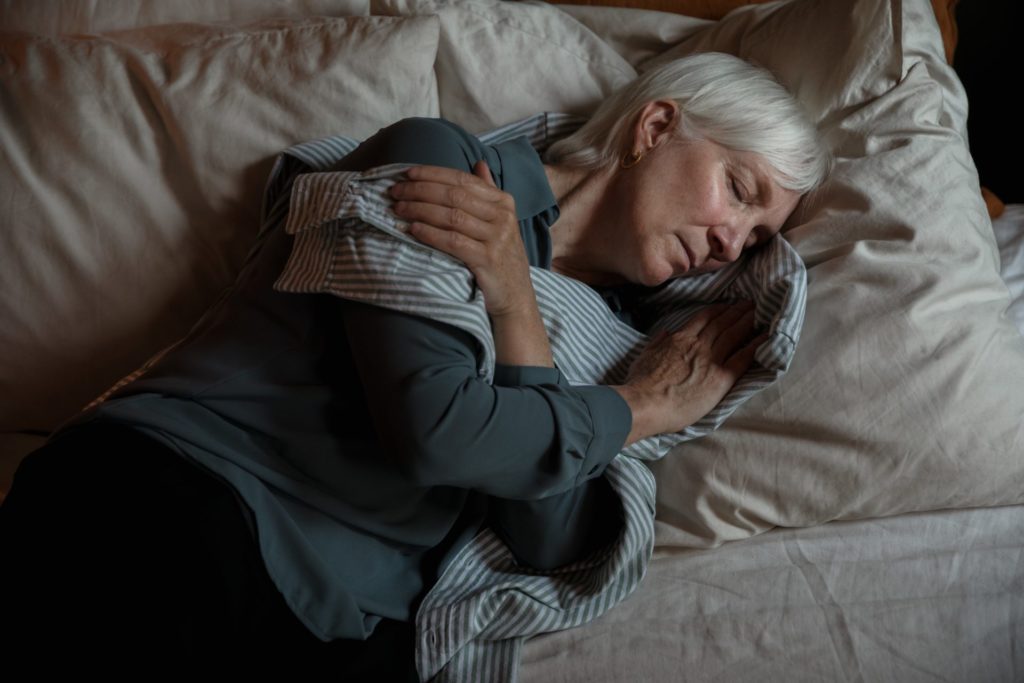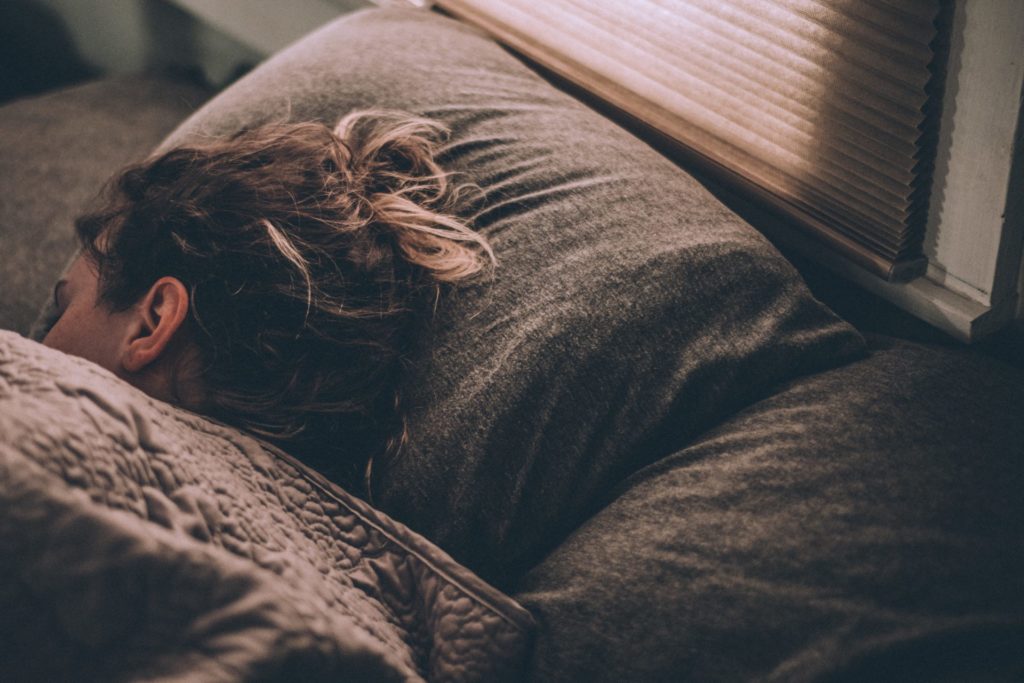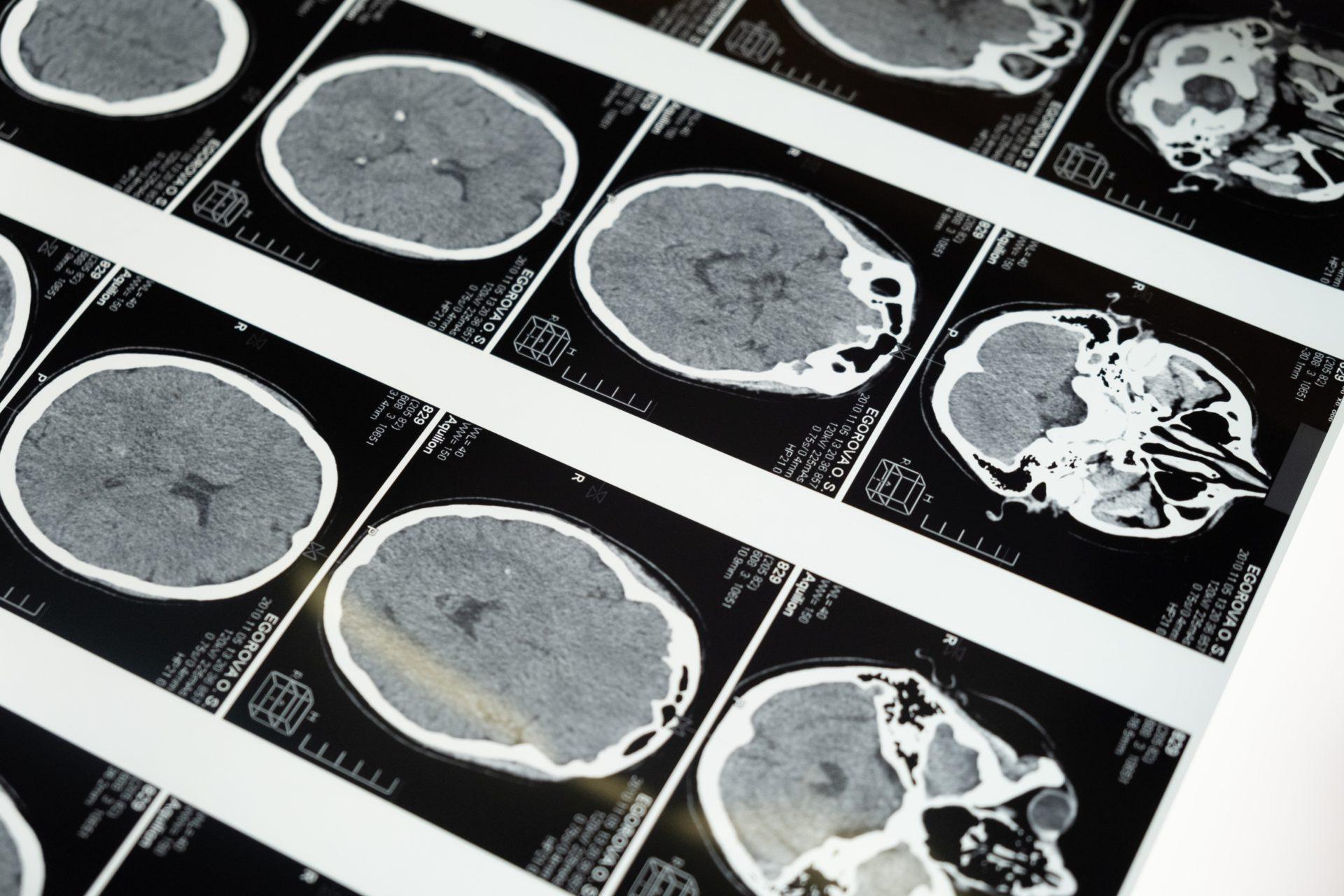The Importance of Sleep for Healthy Aging
Sleep is a cornerstone of health and well-being, and its importance only grows as we age. Quality rest is vital for graceful aging and maintaining a vibrant life.
Sleep is closely tied to our physical health, aiding in cell repair and regeneration, bolstering our immune system, and promoting optimal organ function. Mentally, sleep is essential for cognitive processes like memory consolidation, learning, and problem-solving. Emotionally, it helps regulate mood and supports mental resilience. As we age, understanding changes in our sleep patterns and addressing them is crucial for a restful night’s sleep and optimal health.
Sleep disorders in older adults, if left untreated, can have significant implications for overall health. Research has shown that insufficient sleep or untreated sleep disorders in this population can increase the risk of developing chronic health conditions. For example, a study published in the Journal of Clinical Sleep Medicine found that older adults with untreated sleep apnea were at a higher risk of cardiovascular diseases, such as hypertension, stroke, and heart failure.
In addition to cardiovascular conditions, insufficient sleep has been linked to an increased risk of metabolic disorders, including type 2 diabetes. A study published in Diabetes Care revealed that older adults with shorter sleep duration and poorer sleep quality had a higher prevalence of diabetes.
Furthermore, untreated sleep disorders can contribute to the development or exacerbation of mental health issues, such as depression and anxiety. Poor sleep can negatively impact mood regulation, cognitive function, and overall mental well-being in older adults.
To mitigate these risks, it is crucial for older adults to seek medical advice and treatment for sleep disorders. Consulting with healthcare professionals, such as sleep specialists or physicians, can help identify underlying sleep conditions and explore appropriate interventions or therapies. By addressing sleep disorders effectively, older adults can potentially reduce the risk of developing or worsening chronic health conditions, leading to improved overall health and well-being.
Changes in Sleep Patterns as You Age
As we progress through life, our sleep patterns naturally evolve. Understanding these changes can help us adapt our sleep habits to promote better rest as we age.
One common change that occurs with age is a shift in our circadian rhythm. The circadian rhythm is our internal body clock that regulates the timing of our sleep-wake cycles. In younger adults, this rhythm tends to follow a consistent pattern, with a preference for staying up later in the evening and waking up later in the morning. However, as we get older, the circadian rhythm often shifts, leading to earlier bedtimes and waking up earlier in the morning.
This shift can result in difficulties falling asleep at night and a tendency to wake up earlier than desired. For example, you may find yourself feeling sleepy in the early evening, causing you to retire to bed sooner than before. On the flip side, you may find yourself waking up at the crack of dawn, unable to get the desired amount of sleep.
Additionally, older adults tend to experience changes in sleep architecture, which refers to the different stages of sleep we cycle through during the night. Specifically, there is a decrease in the amount of deep sleep (also known as slow-wave sleep) and REM sleep (the stage associated with dreaming) as we age. These changes can impact the restorative nature of our sleep and leave us feeling less refreshed upon waking.

Factors Affecting Sleep in Older Adults
Several factors can influence sleep in older adults, making it important to consider these factors when striving for better rest as we age. Let’s explore some of the key elements that can affect sleep quality in the later stages of life.
Chronic Health Conditions:
As we age, we are more likely to develop chronic health conditions that can impact sleep. Conditions such as arthritis, respiratory disorders, heart disease, and chronic pain can cause discomfort, making it difficult to find a comfortable position for sleep. Conditions like sleep apnea, characterized by pauses in breathing during sleep, can also disrupt sleep and lead to daytime fatigue.
Medication Side Effects:
Older adults often take medications to manage various health conditions. However, certain medications can interfere with sleep patterns. Some medications may cause insomnia, while others may induce drowsiness during the day, leading to irregular sleep-wake cycles. It is essential to consult with healthcare professionals to understand potential sleep-related side effects of medications and explore alternatives if necessary.
Lifestyle Choices:
Our lifestyle choices can significantly impact our sleep quality. Factors such as excessive caffeine intake, particularly later in the day, can interfere with falling asleep and staying asleep. Irregular sleep schedules, including napping too close to bedtime, can disrupt the body’s internal clock and make it challenging to establish a consistent sleep routine. Lack of physical activity or engaging in stimulating activities before bedtime can also hinder sleep quality.
Environmental Factors:
The sleep environment plays a crucial role in facilitating restful sleep. Noise disturbances, excessive light, uncomfortable bedding, or an excessively warm or cold bedroom can all impact sleep quality. Creating a sleep-friendly environment by addressing these factors can promote better rest.
Top Tips for Better Sleep as You Age
To achieve better sleep and support graceful aging, it is essential to implement effective strategies and make adjustments to accommodate the changes that come with getting older. Here are some top tips and expert advice to promote optimal sleep as you age:
Create a Relaxing Sleep Environment: Transform your bedroom into a sanctuary for sleep. Keep it dark, quiet, and cool to promote a restful atmosphere. Consider using blackout curtains to block out external light, earplugs or a white noise machine to minimize disturbances, and ensure your mattress, pillows, and bedding provide comfort and support for your body.

Stick to a Consistent Sleep Schedule: Establishing a regular sleep routine can help regulate your body’s internal clock. Aim to go to bed and wake up at the same time every day, even on weekends. This consistency trains your body to anticipate sleep and promotes a more restful night.
Practice Relaxation Techniques: Incorporate relaxation techniques into your bedtime routine to signal to your body that it’s time to wind down. Engaging in activities such as gentle stretching, deep breathing exercises, meditation, or taking a warm bath can promote relaxation and prepare your mind and body for sleep. Find what works best for you and make it a regular habit.
Limit Stimulants and Screens: Be mindful of your consumption of stimulants, particularly caffeine and alcohol, especially close to bedtime. These substances can interfere with your ability to fall asleep and stay asleep. Additionally, limit screen time, especially in the evening, as the blue light emitted by electronic devices can disrupt your sleep-wake cycle. Instead, opt for reading a book, listening to soothing music, or engaging in calming activities before bed.
Engage in Regular Physical Activity: Regular exercise has been shown to improve sleep quality. Engaging in physical activity during the day can help regulate your sleep-wake cycle and promote a deeper, more restorative sleep. Aim for at least 30 minutes of moderate-intensity exercise most days of the week. Activities such as walking, swimming, or yoga can be great options for older adults.
By implementing these top tips and incorporating them into your daily routine, you can optimize your sleep as you age. Remember, better rest leads to better health, cognitive function, and overall well-being. Join us at Healthy Aging as we delve deeper into various aspects of aging gracefully and explore the secrets to living a vibrant and fulfilling life.
Important Questions to Consider on Sleep and Aging
What are 10 tips to improve sleep?
Ten tips to improve sleep include creating a relaxing sleep environment by keeping the bedroom dark, quiet, and cool; sticking to a consistent sleep schedule; practicing relaxation techniques such as deep breathing and meditation; limiting stimulants like caffeine and alcohol; engaging in regular physical activity; avoiding heavy meals close to bedtime; establishing a pre-bedtime routine to signal the body for sleep; using white noise machines or earplugs to minimize disturbances; investing in a comfortable mattress and pillows; and seeking medical advice for any underlying sleep disorders or conditions that may affect sleep quality.

How much sleep does a 70-year-old need?
The amount of sleep needed for a 70-year-old can vary, but generally, older adults require around 7-8 hours of sleep per night. However, individual sleep needs can differ, and factors such as overall health, activity level, and lifestyle can influence the specific sleep requirements of a 70-year-old. It’s important to pay attention to personal sleep cues and ensure that you feel well-rested and refreshed upon waking.
How do you promote rest and sleep in older adults?
To promote rest and sleep in older adults, several strategies can be implemented. Creating a calming sleep environment, as mentioned in the previous tips, can help. Additionally, establishing a consistent bedtime routine that incorporates relaxation techniques and avoiding stimulating activities before bed can be beneficial. Encouraging regular exercise during the day can aid in promoting better sleep quality. It’s important to address any underlying medical conditions, such as sleep apnea or chronic pain, through medical interventions. Lastly, fostering a supportive and understanding environment where sleep concerns are acknowledged and addressed can contribute to improved rest and sleep for older adults.
What is the 10 3 2 1 0 rule for sleep?
The 10-3-2-1-0 rule for sleep is a guideline to optimize sleep hygiene and promote better sleep. It suggests the following: 10 hours before bed, avoid consuming caffeine to allow its effects to wear off; 3 hours before bed, avoid consuming large meals to prevent discomfort during sleep; 2 hours before bed, avoid engaging in stimulating activities or intense exercise; 1 hour before bed, avoid using electronic devices that emit blue light, which can interfere with the sleep-wake cycle; and 0, the ideal time to be in bed, ensuring that you have enough time to achieve the recommended amount of sleep based on your individual needs. Following this rule can help establish healthy sleep habits and improve overall sleep quality.
Sleep for Healthy Aging: Restful Sleep You Need
In conclusion, sleep is a vital component of healthy aging and plays a significant role in our overall well-being and quality of life. As we age, it’s important to understand the changes in sleep patterns and the factors that can impact sleep quality.
By creating a relaxing sleep environment, sticking to a consistent sleep schedule, practicing relaxation techniques, limiting stimulants and screens, and engaging in regular physical activity, you can improve your sleep as you age. These strategies can help you achieve better rest, enhance your cognitive function, promote emotional well-being, and support graceful longevity.
Remember that everyone’s sleep needs may vary, so it’s essential to listen to your body and adapt these tips to suit your specific needs and preferences. Consulting with healthcare professionals can provide further guidance and support tailored to your individual circumstances.
At Healthy Aging, we are dedicated to providing expert advice, valuable resources, and a community for those seeking to age gracefully and live a vibrant life. We believe that by prioritizing sleep and incorporating these tips into your daily routine, you can unlock the gateway to graceful longevity and enjoy a higher quality of life.
Join us on this journey of exploring longevity tips, uncovering better living strategies, and embracing holistic health for a fulfilling and vibrant future. Together, let’s unlock the secrets to healthy aging and discover the joys of a well-rested and thriving life.
Read more: Increasing Lifespan: Simple Actions for Longevity and Well-Being
Disclaimer: The information provided in this blog post is for educational purposes only and should not be considered as medical, financial, or legal advice. Consult with your medical, financial, and healthcare professionals for personalized guidance and recommendations regarding your specific needs and conditions.





